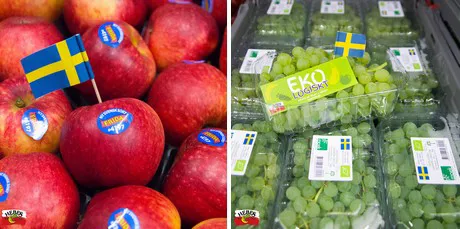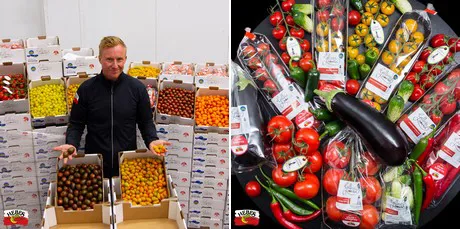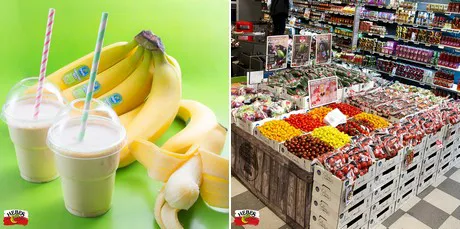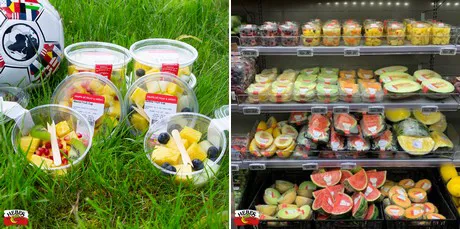Scandinavian countries are known to import high volumes of fruits and vegetables because they do not have much local production. According to Anita Jansson from Swedish wholesale company Hebes, however, there has been an increased focus on locally produced products in the past few years. Anita says: “Sweden’s local production is increasing with the help of new technology. We are now able to grow a larger variety of products such as tomatoes, cucumbers, aubergines, chilis and peppers. New technologies have lengthened the seasons and have also improved storage possibilities. Our Swedish apples, for example, are now available for longer periods because technology allows us to create new varieties that we can store for longer and have better shelf-lives.”

According to Anita, the Swedish consumers are showing a preference for locally grown foods, but, like the consumers in many other countries, they aren’t willing to pay the price. “We see a lot of media coverage about the growing popularity of local products, but the sales aren’t reflecting this. This is because the locally grown produce always comes with a higher price. Personally, I think it is rather shortsighted to avoid local produce because of the price-tag. If sales increase, then production will also increase. It will boost the local agriculture sector, which will increase product volumes and in turn reduce prices. Increasing local produce will also have a positive effect on the climate. When we import less products, we are cutting down on the emissions that go along with those long transport trips. Finally, it would also stimulate our local economy, which is something that everyone would see a return on," Anita explains.

While the sales of local produce aren’t quite as high as expected, it’s popularity is in competition with that of organic produce. Anita points out that the preference of local over organic depends on the product: “For products that are not grown locally, such as bananas, the consumer shows a vast preference for organic over normal, and we see about 80% of banana sales are organic bananas. But when there is the choice between locally produced conventional tomatoes, and imported organic tomatoes, the consumer will more often choose the local variety.” Anita also discusses the future of organic produce and the controversies surrounding the topic: “There are positive and negative aspects to organic, and the negative sides are more often being discussed today. Organic produce requires larger areas of land to grow on, so this decreases the yield per hectare, as well as requiring a larger amount of trees to be removed in order to make room for the farming practices. This begs the question if organic might even be damaging the climate in the long run.”

The consumer’s concern for the climate also drives the packaging at Hebes. Anita says: “Polls have shown that three out of four consumers prefer paper over plastic packaging and our company works to satisfy these consumer demands. We see a growing popularity of take-away and pre-cut fruits and vegetables, and so we are challenged to find eco-friendly packaging for these kinds of products. We have hand cut fruit in fruit cups and slices or halves of melon that we package in trays and plastic film. The fruit cups use recycled plastic, and the slices and halves will be in a bioplastic by this autumn.”

The company’s current focus is on working with the creativity and enthusiasm of the local growers so that they can increase sustainability by offering more domestically grown products in the future.
For more information:
Anita Jansson
Hebe
Tel: +46 31 780 2700
Email: anita.jansson@hebe.se
www.hebe.se
